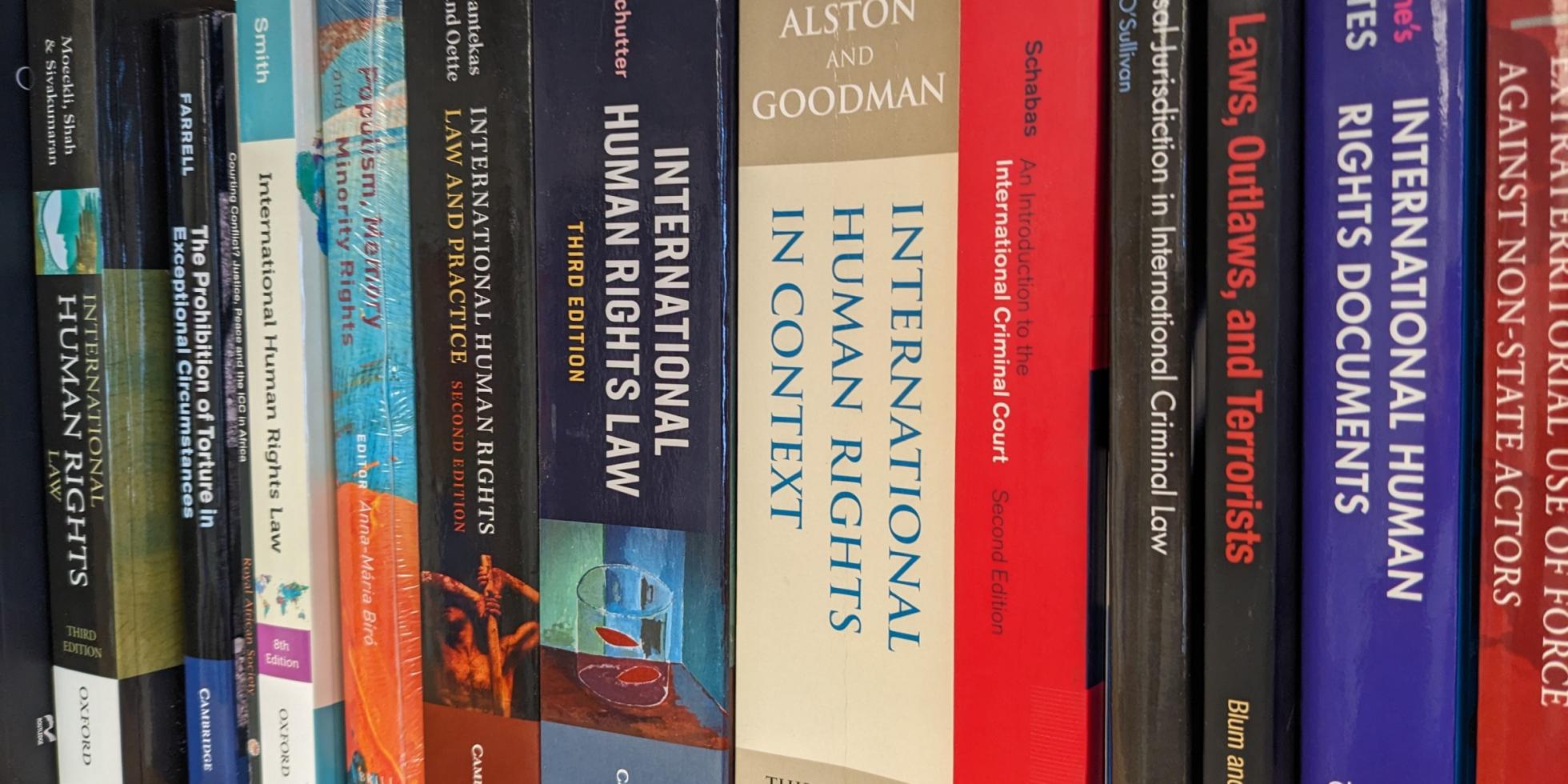The virtual human rights library brings together resources from multiple libraries and information services, both internal and external, to create an online hub dedicated to the study of human rights. This curation is unique in its interdisciplinary concerns and focuses on writings and research from social sciences, humanities, and law.
The virtual library is continually updated with the latest academic research in issue areas, as well as with relevant films, recorded conversations, and other forms of media.
Please Note:
The Virtual Library is usable by all visitors, but the hyperlinks to materials listed are for UChicago community members with a CNet ID and password.
Please direct feedback and suggestions to Kathleen Cavanaugh.
For technical assistance, email pozenhumanrights @ uchicago.edu.
Searchable Database
Click into the dropdowns to select the disciplines, keywords, and media type for your search, and then hit "Apply."
Kabul Carnival: Gender Politics in Postwar Afghanistan
After the attacks of September 11, 2001, the plight of Afghan women under Taliban rule was widely publicized in the United States as one of the humanitarian issues justifying intervention. Kabul Carnival explores the contradictions, ambiguities, and unintended effects of...
Killing the Black Body: Race, Reproduction and the Meaning of Liberty
In 1997, this groundbreaking book made a powerful entrance into the national conversation on race. In a media landscape dominated by racially biased images of welfare queens and crack babies, Killing the Black Body exposed America's systemic abuse of Black...
L'amour, la fantasia
Assia Djebar L'Amour, la fantasia Nous glissons du passé lointain au passé proche, de la troisième personne à la première ; extraordinaire évocation du père, instituteur de français, de la mère, des cousines, des femmes cloîtrées vives et dont le...
La femme aux pieds nus
«Cette femme aux pieds nus qui donne le titre à mon livre, c'est ma mère, Stefania. Lorsque nous étions enfants, au Rwanda, mes sœurs et moi, maman nous répétait souvent : "Quand je mourrai, surtout recouvrez mon corps avec mon...
Laboring Women: Reproduction and Gender in New World Slavery
In Laboring Women: Reproduction and Gender in New World Slavery, Jennifer L. Morgan examines for the first time how African women's labor in both senses became intertwined in the English colonies. Beginning with the ideological foundations of racial slavery in...
Les Misérables
Paris et ses prisons, ses égouts. Paris insurgé : le Paris des révolutions, des barricades sur lesquelles fraternisent les hommes du peuple. Paris incarné à travers la fi gure de Gavroche, enfant des rues effronté et malicieux. Hugo retrace ici...
Made in China: Women Factory Workers in a Global Workplace
As China has evolved into an industrial powerhouse over the past two decades, a new class of workers has developed: the dagongmei, or working girls. The dagongmei are women in their late teens and early twenties who move from...
Marriage and the Law in the Age of Khubilai Khan: Cases from the Yuan dianzhang
The Mongol conquest of China in the thirteenth century and Khubilai Khan’s founding of the Yuan dynasty brought together under one government people of different languages, religions, and social customs. Chinese law evolved rapidly to accommodate these changes, as reflected...
Men We Reaped
In five years, Jesmyn Ward lost five young men in her life--to drugs, accidents, suicide, and the bad luck that can follow people who live in poverty, particularly black men. Dealing with these losses, one after another, made Jesmyn ask...
Minority Rules: The Miao and the Feminine in China's Cultural Politics
Minority Rules is an ethnography of a Chinese people known as the Miao, a group long consigned to the remote highlands and considered backward by other Chinese. Now the nation’s fifth largest minority, the Miao number nearly eight million people...

